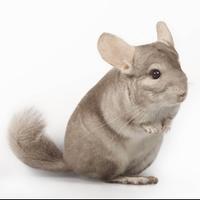(A2) 12. Τσιντσιλά
|Chinchilla
|Chinchilla
|Chinchilla
|チンチラ
(A2) 12. Chinchilla
(A2) 12. Chinchilla
(A2) 12. Chinchilla
(A2) 12. Chinchilla
(A2) 12. Chinchilla
(A2) 12. Szynszyla
(A2) 12. Chinchila
(A2) 12. Шиншилла
(A2) 12. Chinchilla
(A2) 12. Шиншила
Το τσιντσιλά ζει στη Νότια Αμερική.
|||||Amérique
||生活||南|
|Chinchilla|||Südamerika|
the|chinchilla|lives|in the|South America|South America
|cincillà||||
The chinchilla lives in South America.
Le chinchilla vit en Amérique du Sud.
チンチラは南アメリカに生息しています。
Шиншилла обитает в Южной Америке.
Παίρνει το όνομά του από τους Ινδιάνους Τσίντσα.
|||||||钦查
||||||Indiens|
Takes||name||from|the|Indians|Chincha Indians
|||||||Chinchua
|||||||Cinca
It takes its name from the Chincha Indians.
Il tire son nom des Indiens Chinchilla.
その名前はチンチのインディアンから来ています。
Свое название он получил от индейцев чинча.
Οι Ινδιάνοι κρατούν τη γούνα του για ζέστη και το κρέας του για φαγητό.
|les Indiens|gardent||fourrure|||chaleur||||||
the|Native Americans|"keep"||fur||for|heat|||meat|of it||food
||halten||Fell|||||||||
I||tengono||pelliccia|||||||||
|印第安人|保持||皮毛|||||||||食物
||||毛皮|||||||||
Die Indianer halten sein Fell als Wärmequelle und sein Fleisch als Nahrungsmittel.
The Indians keep its fur for warmth and its meat for food.
Les Indiens gardent sa fourrure pour la chaleur et sa viande pour se nourrir.
Gli indiani ne conservano la pelliccia per riscaldarsi e la carne per nutrirsi.
インディアンはその毛皮を暖かさのために、肉を食べ物として保持しています。
Индейцы хранят его мех для тепла, а мясо для еды.
Αργότερα, έρχεται στην Ευρώπη και η μαλακή του γούνα γίνεται γνωστή.
||||||douce|||devenant|connue
later|"comes"|to the|Europe|||soft||soft fur|becomes known|well-known
später||||||weiche||Fell||bekannt
||||||morbida||||
|来||欧洲|||||皮毛|变得|
||||||||毛皮||有名になる
Später kommt sie nach Europa und ihr weiches Fell wird berühmt.
Later, it comes to Europe and its soft fur becomes famous.
Plus tard, il arrive en Europe et sa fourrure douce devient célèbre.
In seguito, arriva in Europa e la sua morbida pelliccia diventa famosa.
後に、彼はヨーロッパに来て、その柔らかい毛皮が知られるようになります。
Έτσι, οι άνθρωποι σκοτώνουν εκατομμύρια τσιντσιλά για το δέρμα τους.
||||百万|||||
|||töten|Millionen||||Haut|
Thus||people|kill|millions|chinchillas|||fur|their
||||millions|chinchillas||||
|||||チンチラ||||
Die Menschen töten also Millionen von Chinchillas wegen ihrer Haut.
So people kill millions of chinchillas for their skin.
Des millions de chinchillas sont donc tués pour leur peau.
Così la gente uccide milioni di cincillà per la loro pelle.
そのため、人々は彼らの皮のために何百万匹ものチンチラを殺します。
Για να γίνει μία μόνο γούνα, χρειάζεται το δέρμα εκατό τσιντσιλά!
|||||皮毛|||||
||||||||peau||
||werden|||Fell||||einhundert|
||"be made"||only|fur coat|is needed||skin|hundred|chinchillas
Für die Herstellung eines einzigen Pelzmantels werden hundert Chinchillas benötigt!
To make a single fur, the skin needs a hundred chinchillas!
Pour fabriquer un seul manteau de fourrure, le cuir a besoin d'une centaine de chinchillas !
Per realizzare una sola pelliccia, la pelle ha bisogno di cento cincillà!
1つの毛皮を作るには、100匹のチンチラの皮が必要です!
Σήμερα, το κυνήγι τους απαγορεύεται.
||||запрещено
||chasse||est interdit
Today||hunting|their|is prohibited
||Jagd||ist verboten
||||禁止されている
Heute ist die Jagd auf sie verboten.
Today, hunting them is prohibited.
Aujourd'hui, leur chasse est interdite.
今日は、彼らの狩猟は禁止されています。
Сегодня их охота запрещена.
Τα τσιντσιλά κοιμούνται την ημέρα και ξυπνάνε τη νύχτα.
||||||просыпаются||
||dorment||||se réveillent||
|chinchillas|"sleep"|the|day|and|wake up||at night
|Chinchillas|schlafen||||wachen||
||||白天||||
||||||起きる||
Chinchillas schlafen tagsüber und wachen nachts auf.
Chinchillas sleep during the day and wake up at night.
Les chinchillas dorment pendant la journée et se réveillent la nuit.
I cincillà dormono di giorno e si svegliano di notte.
チンチラは昼間に眠り、夜に起きます。
Шиншиллы спят днем и просыпаются ночью.
Η φροντίδα τους είναι εύκολη και είναι πολύ καθαρά.
|забота|||легкая||||чистыми
|soin|||||||propres
The|care|their||easy||||very clean
|Pflege|||||||sauber
|cura|||||||clean
Ihre Pflege ist einfach und sie sind sehr sauber.
They are easy to care for and very clean.
Leur soin est facile et ils sont très propres.
La loro cura è semplice e sono molto puliti.
彼らの世話は簡単で、とても清潔です。
За ними легко ухаживать, и они очень чистые.
Όταν νιώσουν άνετα με αυτόν που τα προσέχει, τους αρέσει να τα ξύνουν κάτω από το πηγούνι και πίσω από τα αυτιά.
|почувствуют|удобно||||||||||||||подбородком|||||ушами
|se sentent||||||s'occupe|||||se gratter|||||||||oreilles
when|feel|comfortable||him|"who"||takes care of|||||scratch|under|||chin|and|behind|||ears
|sie fühlen|wohl|||||achtet|||||kratzen||||Kinn|||||Ohren
||comodamente||||||||||grattare||||mento|||||orecchie
||||||||||||挠||||下巴|||||耳朵
|感じる||||||||||||||||||||
Wenn sie sich mit der Person, die sich um sie kümmert, wohlfühlen, kratzen sie sie gerne unter dem Kinn und hinter den Ohren.
Once they are comfortable with the person taking care of them, they like to be scratched under the chin and behind the ears.
Quand ils se sentent à l'aise avec celui qui s'occupe d'eux, ils aiment se faire gratter sous le menton et derrière les oreilles.
Quando si sentono a proprio agio con la persona che li accudisce, amano grattarla sotto il mento e dietro le orecchie.
彼らを世話している人に慣れると、顎の下や耳の後ろをかかれるのが好きです。
Как только они чувствуют себя комфортно с человеком, который о них заботится, им нравится, когда их чешут под подбородком и за ушами.
Коли їм комфортно з людиною, яка за ними спостерігає, вони люблять почухати їх під підборіддям і за вухами.
Ζουν μέχρι και είκοσι χρόνια, αλλά μόνο μέσα στο σπίτι.
活|||||||||
sie leben|||||||drinnen||
Live|up to||twenty||||inside||house
|||||ma||||
Sie können bis zu zwanzig Jahre alt werden, aber nur im Inneren des Hauses.
They live up to twenty years, but only inside the house.
Ils vivent jusqu'à vingt ans, mais seulement à l'intérieur de la maison.
Vivono fino a vent'anni, ma solo all'interno della casa.
彼らは最大で20年生きますが、家の中だけです。
Живут до двадцати лет, но только внутри дома.

